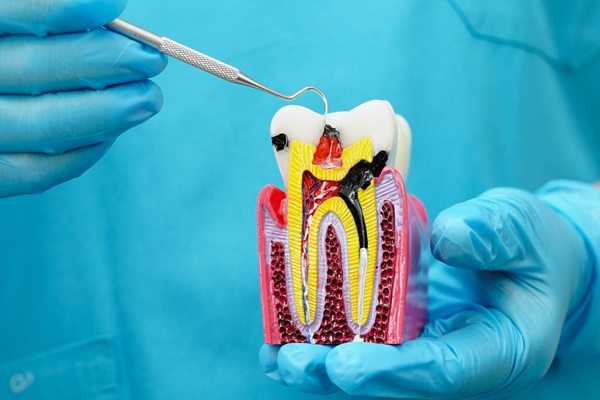3 Common Endodontic Procedures [Root Canal]

Looking for more information on endodontic procedures so you can have an idea of what to expect when you make an appointment with an endodontist? Many dental patients are taking the time to learn more about what to expect when they are in need of dental treatment. This is a great idea, as the more you understand about any particular procedure you need to undergo, the more likely you will experience a successful outcome.
What does an endodontist do?
Finding out more about the different types of endodontic procedures an endodontist can perform on their patients allows you to understand whether or not you are in need of this type of dental professional. According to the American Association of Endodontists, endodontists have completed an additional two or more years of training beyond dental school, allowing them to focus on diagnosing tooth pain and root canal treatment and other procedures relating to the interior of the tooth.
Three of the most common endodontic procedures performed today
The list below includes three of the more common types of endodontic procedures endodontists are performing on their patients nowadays.
#1 – Root canals
Root canal therapy is the most common type of endodontic procedure performed today. The procedure is necessary for dental patients who have an infection in one of their teeth and is performed in order to remove the infection so that the tooth can once again function as it is supposed to. After the patient receives a local anesthetic, the endodontist will make a small hole in the tooth and then remove all of the infection inside. They will then clean the tooth, fill it with a special dental material and seal it, completing the root canal procedure.
#2 – Apicoectomy
An apicoectomy is another type of endodontic procedure performed nowadays and is often an option for dental patients who will not have their tooth problems solved by undergoing root canal therapy. The procedure requires an experienced endodontist to remove the very tip of a tooth’s root and then seal the tooth to protect it. The procedure also requires an endodontist to make a small incision in the gums in order to access the tooth’s root vs. making a hole in the actual tooth.
#3 – Cracked teeth treatment
There are few different categories for cracked teeth, and depending on the category a patient's cracked tooth falls in, an endodontist will decide the type of treatment they need in order to repair their cracked tooth. Categories of cracked teeth include craze lines, fractured cusps, a split tooth, a vertical root fracture and an actual crack in a tooth. All of these types of cracks need to be treated or the tooth may be lost. Treatment options for cracked teeth include fillings, crown treatment, endodontic surgery and extraction.
Are endodontic services in your near future?
The only way you can know if you need endodontic services is to make an appointment with an endodontist so you can undergo a full mouth evaluation. Now that you understand some of the more common endodontic procedures that are performed nowadays, you have an idea of what to expect. If you have questions, be sure to bring them with you to your appointment.
Request an appointment here: https://santarosaendodontics.com or call Santa Rosa Endodontics at (707) 706-2143 for an appointment in our Santa Rosa office.
Check out what others are saying about our services on Yelp: Read our Yelp reviews.
Recent Posts
Root canal treatment is often the first line of defense for treating teeth with compromised pulp chambers. The pulp chamber is the innermost layer of a tooth, and it stores nerves, blood vessels, and connective tissues. The chamber is sealed off from the rest of the tooth to protect it against bacteria and other irritants…
A root canal can preserve and strengthen a severely damaged or infected tooth. When seeing a root canal dentist, asking informed questions can provide clarity, ease concerns, and improve treatment outcomes. Understanding the procedure helps make the experience more comfortable and ensures you are well-prepared for each step.While each patient's situation is unique, the following…
A person might need to see an endodontist for a wide variety of problems, mainly relating to how they can save patients’ teeth. All endodontists are dentists because they have completed dental school, but they do two more years of specialized study in the techniques used to preserve a person’s dentition. So, if you are…
When a root canal fails, a root canal retreatment must happen. Getting a root canal treatment is better than a dental extraction. If an endodontist sees that your tooth still has good bone support and healthy gums under or around it, a root canal can save the tooth. A root canal is a less expensive…


